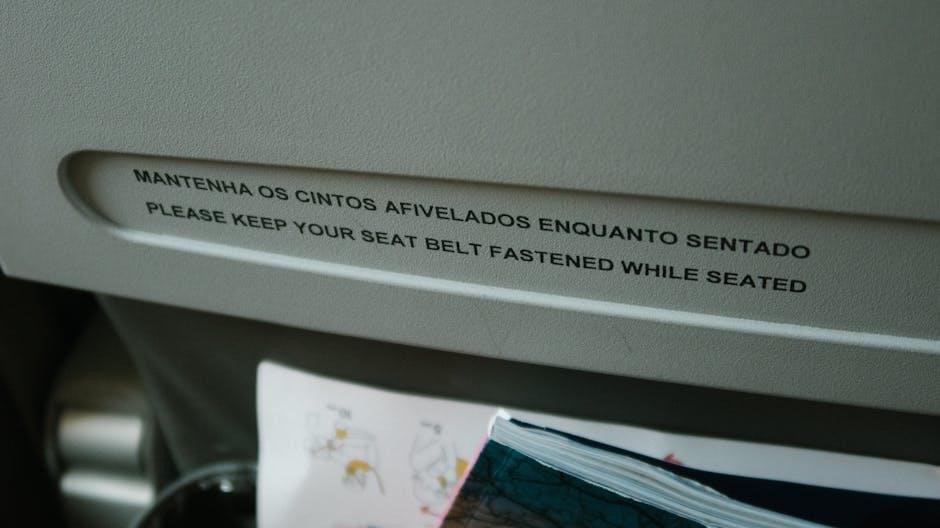Medicare Benefit Policy Manual Chapter 8 provides detailed guidelines for Skilled Nursing Facility (SNF) services under Medicare Part A. It outlines coverage criteria, documentation requirements, and regulations for extended care services, ensuring compliance with federal standards.
1.1 Overview of Chapter 8
Chapter 8 of the Medicare Benefit Policy Manual focuses on the coverage of extended care services in Skilled Nursing Facilities (SNFs) under Medicare Part A. It provides comprehensive guidelines for determining eligibility, duration of coverage, and documentation requirements. The chapter also addresses the 3-day rule, exceptions, and exclusions from SNF coverage. It serves as a foundational resource for understanding the rules and regulations governing SNF services, ensuring compliance with Medicare standards. By outlining key principles and updates, Chapter 8 helps healthcare providers and beneficiaries navigate the complexities of extended care coverage under Medicare.
1.2 Purpose of the Manual
The Medicare Benefit Policy Manual, specifically Chapter 8, is designed to provide clear and standardized policies for Skilled Nursing Facility (SNF) services under Medicare Part A. Its primary purpose is to ensure consistency in coverage decisions, documentation requirements, and care delivery. The manual serves as a guide for healthcare providers, beneficiaries, and Medicare administrators to understand the rules and regulations governing extended care services. It also aims to clarify eligibility criteria, coverage limitations, and reimbursement processes. By standardizing these policies, the manual promotes transparency and fairness in the delivery of SNF care, ensuring that Medicare beneficiaries receive appropriate and necessary services. Regular updates to the manual reflect evolving healthcare needs and regulatory changes.
1.3 Key Updates and Revisions
Chapter 8 of the Medicare Benefit Policy Manual has undergone several key updates to align with current healthcare practices and regulatory changes. Recent revisions include expanded coverage for maintenance therapy, updated documentation standards, and clarifications on the 3-day hospital stay requirement. Additionally, the manual now addresses temporary policies implemented during public health emergencies, ensuring flexibility in care delivery. These updates aim to enhance patient access to necessary services while maintaining program integrity. Providers and beneficiaries are encouraged to review the latest revisions to stay informed about changes in SNF coverage and reimbursement guidelines. Regular updates ensure the manual remains a reliable resource for navigating Medicare Part A policies.

Coverage of Extended Care (SNF) Services
Medicare Part A covers skilled nursing facility (SNF) services for eligible beneficiaries, including post-hospital extended care and skilled therapy, adhering to the 3-day rule and documentation requirements.
2.1 Definition of Skilled Nursing Facility (SNF) Services
Skilled Nursing Facility (SNF) services are specialized care provided in a structured medical setting for patients requiring rehabilitation or recovery after hospitalization. These services include 24/7 nursing care, physical, occupational, and speech therapy, and medical treatments that necessitate professional oversight. SNF care is designed for individuals who need skilled medical attention but no longer require acute hospital care. Services must be ordered by a physician and delivered by licensed healthcare professionals. The goal of SNF services is to help patients recover, regain functional abilities, and transition safely to a lower level of care or home environment. These services are essential for ensuring proper recovery and rehabilitation following serious medical conditions or surgeries.
2.2 Eligibility Criteria for SNF Coverage
To qualify for SNF coverage under Medicare, beneficiaries must meet specific criteria. A patient must require skilled nursing or rehabilitation care on a daily basis, which can only be provided in a skilled nursing facility. The care must be medically necessary and ordered by a physician. Additionally, the patient must have a qualifying hospital stay of at least three consecutive days (not counting the discharge date) within 30 days of SNF admission. The care provided must be aimed at recovery, rehabilitation, or managing a medical condition. Patients must also require 24/7 monitoring and care that cannot be effectively provided in an outpatient or home setting. The facility must be Medicare-certified, and the patient’s condition must justify skilled care rather than custodial care.
2.3 Duration of Coverage
Medicare coverage for Skilled Nursing Facility (SNF) services is generally limited to a maximum of 100 days per benefit period. The first 20 days are fully covered, while days 21 through 100 require a daily copayment. Coverage beyond 100 days is not provided under Medicare Part A. To continue receiving benefits, patients must meet medical necessity requirements and demonstrate ongoing progress in their recovery or rehabilitation. If a patient’s condition stabilizes or no longer requires skilled care, coverage may be terminated earlier. Extensions or additional coverage are rare and typically require exceptional circumstances or a new qualifying hospital stay. The care must remain medically necessary and aligned with the patient’s treatment plan.

Medicare Part A and SNF Services
Medicare Part A covers skilled nursing facility (SNF) services, including skilled nursing care and therapy, when medically necessary and following a qualifying hospital stay. Documentation is required.
3.1 Role of Medicare Part A in SNF Coverage
Medicare Part A plays a central role in covering SNF services, providing financial support for beneficiaries requiring post-hospital skilled care. It ensures access to essential medical services and therapies, promoting recovery and rehabilitation in a structured environment tailored to patient needs. Compliance with specific coverage criteria, such as the 3-day hospital stay rule, is mandated to qualify for benefits. Part A’s coverage is pivotal in bridging the gap between hospital discharge and home recovery, offering necessary care to restore health and functional capabilities.
3.2 Benefits Covered Under Part A
Medicare Part A covers a range of services in Skilled Nursing Facilities (SNFs), including skilled nursing care, physical, occupational, and speech therapies, and necessary medical equipment. It also encompasses medications, dietary services, and other supportive care essential for patient recovery. These benefits are designed to address the medical needs of beneficiaries who require specialized care following hospitalization. Part A ensures access to these services, promoting a comprehensive approach to rehabilitation and recovery. The coverage is tailored to meet the specific requirements of patients needing skilled care, fostering a smooth transition from hospital to home or another care setting. Proper documentation and adherence to guidelines are essential for eligibility.
3.3 Limitations and Exclusions
Medicare Part A coverage for SNF services has specific limitations and exclusions. It does not cover non-skilled care, such as custodial services, or services that do not require the expertise of licensed professionals. Part A also excludes coverage for services beyond the 100-day limit per benefit period, unless a new benefit period begins. Additionally, services not deemed medically necessary or lacking proper documentation are excluded. Personal care, such as assistance with daily living activities, is not covered unless tied to skilled care. Exceptions and appeals processes are available for denied claims, ensuring beneficiaries can address coverage disputes. Understanding these limitations is crucial for navigating SNF benefits effectively.

The 3-Day Rule and Hospital Stay Requirements
Medicare requires a qualifying 3-day hospital stay for SNF coverage, ensuring patients meet specific criteria for post-hospital extended care services under Part A.
4.1 Understanding the 3-Day Rule
The 3-Day Rule mandates that Medicare beneficiaries must have a qualifying hospital stay of at least three consecutive days to be eligible for SNF coverage under Part A. This period must include three days in a hospital, not counting the discharge day. The stay must be medically necessary, and the services provided must be billed as inpatient care. This rule ensures that SNF services are reserved for patients requiring skilled care following a significant hospitalization. Proper documentation of the hospital stay and medical necessity is essential for coverage approval. This rule helps align patient needs with appropriate levels of care while managing healthcare resource utilization effectively.
4.2 Qualifying Hospital Stay
A qualifying hospital stay for SNF coverage under Medicare requires at least three consecutive days of inpatient care in a hospital. This period must be medically necessary and billed as inpatient services. The stay must be formally admitted as an inpatient, with the attending physician certifying the need for skilled care. Observation stays do not qualify, as they are not considered inpatient care. The discharge day is not counted toward the three-day requirement. This provision ensures that SNF services are only provided when medically necessary following a substantial hospitalization. Proper documentation of the hospital stay and medical necessity is critical for eligibility. This rule helps ensure appropriate transitions from hospital to SNF care, aligning patient needs with necessary services.
4.3 Exceptions to the 3-Day Rule
Exceptions to the 3-Day Rule exist under specific circumstances. During public health emergencies, CMS may waive the requirement for a qualifying hospital stay. Additionally, patients with certain medical conditions or those requiring specialized care may qualify for SNF coverage without meeting the 3-day rule. For instance, beneficiaries needing maintenance therapy for conditions like cerebral palsy may be exempt. CMS also allows exceptions when medically necessary, such as when a patient’s condition requires immediate skilled care post-discharge. Documentation must justify the exception, ensuring compliance with Medicare guidelines. These exceptions aim to address unique patient needs while maintaining program integrity. Providers must adhere to CMS directives for such cases.

Documentation Requirements for SNF Services

Documentation for SNF services must include patient assessments, therapy plans, and progress notes. CMS guidelines require detailed records of patient needs, therapy responses, and discharge planning to ensure compliance.
5.1 Patient Assessment and Documentation
Patient assessment and documentation are critical for determining eligibility and coverage of SNF services. The process begins with a comprehensive evaluation of the patient’s medical history, current condition, and functional abilities. This initial assessment must be thoroughly documented and updated regularly to reflect progress or changes in the patient’s status. Accurate records are essential for justifying the need for skilled care and ensuring compliance with CMS guidelines. Documentation must include specific details about the patient’s response to therapy, any medical complications, and adjustments to the care plan. Proper documentation also supports reimbursement claims and helps verify that services provided are medically necessary and aligned with Medicare requirements.
5.2 Therapy and Care Plans
Therapy and care plans are central to Medicare’s coverage of SNF services. These plans must outline specific, measurable goals tailored to the patient’s needs, ensuring skilled care is provided. Physical, occupational, and speech therapies are covered when deemed medically necessary. Care plans should detail the type, frequency, and duration of therapies, reflecting the patient’s progress. Updates to care plans must be documented, especially when there are changes in the patient’s condition or therapy requirements. CMS guidelines emphasize the importance of individualized care plans to ensure services are appropriate and effective, aligning with Medicare’s requirements for skilled therapy coverage in SNFs.
5.3 Progress Notes and Discharge Planning
Progress notes are essential for documenting a patient’s clinical progress and ongoing need for skilled care. These notes must be timely, concise, and reflect the patient’s response to treatment. Discharge planning begins at admission and involves creating a personalized plan to ensure a smooth transition to the next level of care. The plan must address the patient’s medical, functional, and social needs, with input from the patient, family, or caregiver. CMS guidelines require that discharge plans include arrangements for post-discharge services, such as home health care or outpatient therapy, to support continued recovery. Accurate and comprehensive documentation is critical for validating coverage and ensuring seamless care transitions.

Coverage of Nursing Care and Therapy
Chapter 8 outlines Medicare coverage for skilled nursing care and therapy services, emphasizing requirements for qualifying care and documentation of patient progress and treatment responses.
6.1 Skilled Nursing Care Requirements
Skilled nursing care under Medicare requires services provided by licensed professionals, such as registered nurses, to address medical conditions needing specialized care. Documentation must detail the patient’s needs, therapy progress, and responses to treatment. Services like wound care, IV therapy, and rehabilitation qualify as skilled care when medically necessary. custodial care, such as assistance with daily living activities, is excluded. The care must be ordered by a physician and align with a documented care plan. Regular assessments are essential to justify continued coverage. These requirements ensure that Medicare only covers care that is therapeutically beneficial and cannot be managed effectively without skilled intervention.
6.2 Coverage of Physical, Occupational, and Speech Therapy
Physical, occupational, and speech therapies are covered under Medicare Part A when provided in a Skilled Nursing Facility (SNF) and deemed medically necessary. These therapies must be part of a treatment plan aimed at restoring or maintaining functional abilities. Documentation of the patient’s progress and response to therapy is required to justify continued coverage. The therapies must be ordered by a physician and provided by licensed professionals. Maintenance therapy, focused on preserving current functional levels, is also covered if it meets specific criteria outlined in the Medicare Benefit Policy Manual. These services are essential for patients recovering from illness, injury, or surgery, ensuring they regain independence and quality of life.
6.3 Maintenance Therapy and Medicare Coverage
Maintenance therapy under Medicare is covered when it is medically necessary to maintain the patient’s current functional level and prevent deterioration. This type of therapy must be ordered by a physician and provided by licensed professionals. Documentation of the patient’s needs, therapy course, and response is required to justify coverage. Maintenance therapy is distinct from restorative therapy, which focuses on improving function. Medicare Part A covers maintenance therapy in a Skilled Nursing Facility (SNF) as part of the overall care plan. The therapy must align with the patient’s treatment goals and be documented in their medical records to ensure compliance with Medicare guidelines.

Exclusions from SNF Coverage
Medicare excludes certain services from SNF coverage, such as non-skilled care, custodial care, and services not requiring professional oversight, ensuring coverage aligns with skilled nursing needs only.
7.1 Non-Skilled Care Services
Medicare excludes non-skilled care services from SNF coverage, as these do not require professional oversight. Examples include basic assistance with daily living activities, such as bathing or dressing, which are considered custodial care. These services are not reimbursable under Medicare Part A, even if provided in an SNF setting. The exclusion emphasizes that only services requiring the expertise of licensed healthcare professionals qualify for coverage. Documentation must clearly differentiate between skilled and non-skilled care to ensure compliance with Medicare guidelines. This distinction is critical for accurate billing and avoiding denial of claims. Non-skilled care services are explicitly outlined in Chapter 8 to prevent misuse of Medicare benefits.
7.2 Custodial Care Exclusions
Custodial care services are explicitly excluded from Medicare SNF coverage under Chapter 8. These services include non-therapeutic care provided to assist with daily living activities, such as bathing, dressing, and eating, which do not require skilled nursing or therapeutic intervention. Custodial care is not reimbursable under Medicare Part A, as it does not meet the threshold for skilled care. The exclusion ensures that Medicare benefits are reserved for medically necessary services requiring professional oversight. This distinction is crucial for preventing misuse of resources and aligns with Medicare’s focus on covering only essential, skilled care. Providers must clearly document the necessity of skilled services to avoid denial of claims for custodial care.
7.3 Other Excluded Services
Medicare excludes certain services from SNF coverage under Chapter 8 beyond custodial care. These include services not requiring skilled nursing or therapy, such as non-therapeutic interventions or care provided solely for convenience. Services not ordered by a physician or those outside the scope of Medicare Part A are also excluded. For example, outpatient services, non-medically necessary care, and services unrelated to the patient’s condition are not covered. The exclusion ensures that only essential, skilled care is reimbursed, maintaining program integrity. Providers must accurately document the medical necessity of services to avoid exclusions and ensure compliance with Medicare regulations. These exclusions align with the program’s focus on medically required care.

Appeals and Reimbursement Processes
Patients can appeal denied SNF coverage through Medicare’s appeal process. Providers follow specific reimbursement procedures, ensuring compliance with CMS guidelines to avoid claim denials and secure payments.
8.1 Patient Appeals for Denied Coverage
Patient appeals for denied SNF coverage are addressed through Medicare’s structured appeal process. Patients or their representatives can request a redetermination of denied claims. The process includes multiple levels of appeal, such as reconsideration and hearings before an Administrative Law Judge. The Medicare Benefit Policy Manual Chapter 8 outlines the specific procedures and timelines for filing appeals. Patients must submit relevant documentation to support their case. The manual ensures that beneficiaries have a clear understanding of their rights and the steps to challenge coverage denials effectively. This process aims to provide fair and timely resolution for patients whose SNF coverage has been denied.
8.2 Provider Reimbursement Process
The provider reimbursement process for SNF services is detailed in the Medicare Benefit Policy Manual Chapter 8. Providers must submit claims with accurate documentation, including patient records and therapy plans. CMS reviews claims to ensure services meet coverage criteria. Reimbursement is based on Medicare’s payment rates and coding guidelines. Providers must comply with all regulations to avoid payment denials. The manual outlines specific billing requirements and timelines for submissions. Proper documentation ensures timely and accurate reimbursement for eligible services. This process is essential for maintaining financial stability for SNF providers while adhering to Medicare’s guidelines. Compliance with these procedures is critical for successful reimbursement outcomes.
8.3 Denial of Claims and Appeal Rights
Denial of claims for SNF services occurs when documentation or services do not meet Medicare’s requirements. Providers and beneficiaries have the right to appeal denied claims. The appeal process involves reviewing the denial reason, submitting additional evidence, and following CMS guidelines. Understanding the appeal process is crucial for resolving disputes and ensuring proper reimbursement. Providers must ensure all documentation supports medical necessity and compliance with coverage criteria. Beneficiaries can also advocate for their rights through Medicare’s appeals system. This process ensures fair evaluation of claims and upholds beneficiary access to necessary care. Proper understanding of appeal rights is essential for navigating the system effectively.

Special Provisions and Updates
Chapter 8 includes special provisions for public health emergencies and updates in coverage for specific conditions, ensuring adaptability and improved care access for beneficiaries.
9.1 Temporary Changes Due to Public Health Emergencies
Medicare Benefit Policy Manual Chapter 8 includes temporary changes during public health emergencies, allowing flexibility in SNF coverage. CMS introduced waivers to reduce barriers for beneficiaries, ensuring access to necessary care. These changes included relaxed requirements for telehealth services and expanded coverage for certain therapies. Documentation and therapy response requirements were adjusted to accommodate emergency conditions. The goal was to maintain continuity of care while addressing unique challenges posed by health crises. These provisions were time-bound but critical in safeguarding patient access to skilled nursing services during unprecedented situations.
9.2 Updates in Coverage for Specific Conditions
Medicare Benefit Policy Manual Chapter 8 includes updates expanding coverage for specific medical conditions, ensuring patients receive necessary care. CMS has broadened coverage for conditions like cerebral palsy, focusing on gait impairment treatment. This update reflects advancements in care and aims to improve quality of life. Additionally, maintenance therapy is now covered under certain conditions, aligning with patient needs. These changes ensure Medicare Part A benefits adapt to medical advancements, providing comprehensive support for beneficiaries with unique conditions. Regular updates in Chapter 8 ensure policies remain aligned with clinical best practices and patient-centered care.
9.3 CMS Guidelines and Clarifications
The Centers for Medicare and Medicaid Services (CMS) regularly updates Chapter 8 to clarify coverage policies for Skilled Nursing Facility (SNF) services. These guidelines ensure consistent application of Medicare rules, addressing areas like documentation requirements and maintenance therapy. CMS provides detailed instructions on patient assessments, therapy plans, and discharge planning, ensuring compliance with federal regulations. Clarifications often include examples of covered services, such as palliative care and specific therapies, to help providers understand eligibility criteria. These updates reflect CMS’s commitment to improving care quality while maintaining program integrity. By aligning policies with clinical practices, CMS ensures beneficiaries receive appropriate and necessary services under Medicare Part A.
Medicare Benefit Policy Manual Chapter 8 serves as a critical resource for understanding SNF coverage, ensuring compliance with regulations and providing clarity on extended care services.
10.1 Summary of Key Points
Medicare Benefit Policy Manual Chapter 8 outlines rules for Skilled Nursing Facility (SNF) services, including eligibility, coverage duration, and documentation requirements. It emphasizes the 3-day hospital stay rule, exceptions, and exclusions like custodial care. The manual details covered therapies, maintenance therapy limits, and appeals processes. Updates address public health emergencies and specific condition coverage. Providers must document patient needs, therapy responses, and discharge plans. Chapter 8 ensures Medicare Part A compliance, balancing patient care with regulatory standards. It remains a vital guide for SNF services, adapting to healthcare changes while maintaining clear guidelines for coverage and reimbursement.
10.2 Importance of Understanding Chapter 8
Understanding Medicare Benefit Policy Manual Chapter 8 is crucial for healthcare providers and beneficiaries to navigate SNF coverage effectively. It clarifies eligibility, documentation, and coverage limits, ensuring compliance with Medicare Part A. Providers gain insights into skilled care requirements, therapy coverage, and exclusion criteria, aiding accurate billing and patient care. Patients benefit from knowing their rights and coverage options, avoiding denied claims. The chapter’s guidelines help mitigate legal and financial risks, ensuring high-quality, cost-effective care. Staying informed enables providers to adapt to updates and deliver care aligned with CMS standards, ultimately enhancing patient outcomes and operational efficiency.
10.3 Future Directions for SNF Coverage
Future directions for SNF coverage under Medicare may focus on expanding telehealth services, enhancing value-based care models, and improving care coordination. CMS is likely to introduce updates to align SNF services with modern healthcare demands, such as increased emphasis on patient-centered care and reduced hospital readmissions. Policies may also address innovative therapies and technologies to improve patient outcomes. Strengthening partnerships between SNFs and healthcare providers could enhance care transitions. Additionally, CMS may refine documentation and billing processes to reduce administrative burdens while ensuring compliance. These changes aim to optimize care quality, accessibility, and cost-efficiency, ensuring SNF services remain a vital component of Medicare’s continuum of care.
